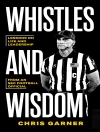The global success of football icons like Samuel Eto’o, Didier Drogba and Mohamed Salah has fuelled the migratory projects of countless young men across the African continent who dream of following – literally and figuratively – in their footsteps. Drawing on over a decade of ethnographic research, African football migration captures and chronicles the aspirations, experiences and trajectories of those pursuing this highly prized form of transnational migration. In doing so, the book uncovers and traces the myriad actors, networks and institutions that affect the ability of young people across the continent to realise social mobility through football’s global production network.
The book sheds critical light on the barriers to social mobility erected by neoliberal capitalism, and how these are negotiated by aspiring African footballers. It also generates original interdisciplinary perspectives on the complex interplay between structural forces and human agency, as young players navigate an industry rife with commercial speculation. While a select few reach the elite levels of the game and build a successful career overseas, the book vividly illustrates how for the vast majority, ‘trying their luck’ through football results in involuntary immobility in post-colonial Africa. These findings are complemented by rare empirical insights from transnational African migrants at the margins of the global football industry and those navigating precarious retirement from careers as players.
African football migration offers essential coverage of why and how African youth and young men have become actors in the global football industry, revealing the complex implications of transnational mobility, both imagined and enacted.
Innehållsförteckning
Introduction
1 Theorising African football migration
2 The history, geography and regulation of African football migration
3 ‘Producing’ African labour for the global football industry
4 Speculation in and through football migration
5 ‘Becoming a somebody’ through football
6 Luck, sackings and involuntary immobility in football
7 Navigating liminality in foreign football industries
8 Hope and precarity in transnational football careers
9 Post-playing-career transitions and struggles
Conclusion
Index
Om författaren
Paul Darby is a Reader in the Sociology of Sport at Ulster University James Esson is a Reader in Human Geography at Loughborough University Christian Ungruhe is a Research Fellow in Social Anthropology at Erasmus University Rotterdam












